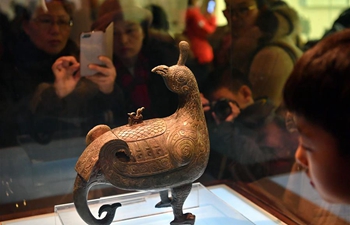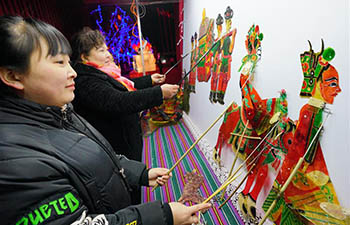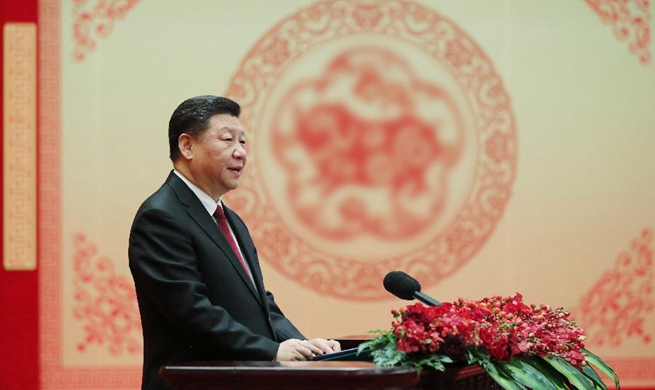UNITED NATIONS, Feb. 9 (Xinhua) -- At least 13.5 million uprooted children in Africa need strengthened national actions as well as regional and international cooperation to uphold their rights and help them fulfill their potential, the UN children's agency appealed Saturday.
Ahead of the African Union (AU) Summit in Addis Ababa, Ethiopia, set for Sunday and Monday, the United Nations International Children's Emergency Fund (UNICEF) urged AU leaders to work together to address the negative drivers of irregular migration and respond to the needs of uprooted children across the continent.
"The majority of African migrants move within Africa, and while much of this movement of people is normal and regular, negative root causes remain major drivers of irregular migration across the continent," said UNICEF Executive Director Henrietta Fore.
"Each day, children and families facing the ravages of violence, poverty or climate change make the painful decision to leave their homes in search of safety and a more hopeful future. Addressing these root causes will help reduce the need for families and children to leave in the first place," she added.
Nearly one in four migrants in Africa is a child, more than twice the global average, and 59 percent of the 6.8 million refugees in African countries are children, according to official files.
At the upcoming summit, the AU is to launch the year of refugees, returnees and internally displaced persons -- a regional effort to support those driven away from their homes by conflict and violence, persecution, climate change, poverty and lack of educational opportunities.
In addition to addressing the negative drivers of irregular migration, UNICEF called on African governments to implement policies and programs to protect, empower and invest in refugees as well as migrant and displaced children.
"At the upcoming summit, AU leaders have a tremendous opportunity to show the rest of the world a better way by strengthening protection and support for uprooted children," appealed Fore.
UNICEF also urged AU governments to work together to collect and share better, timely and accessible data and evidence that will improve understanding of how migration and forced displacement affect children and their families.

















